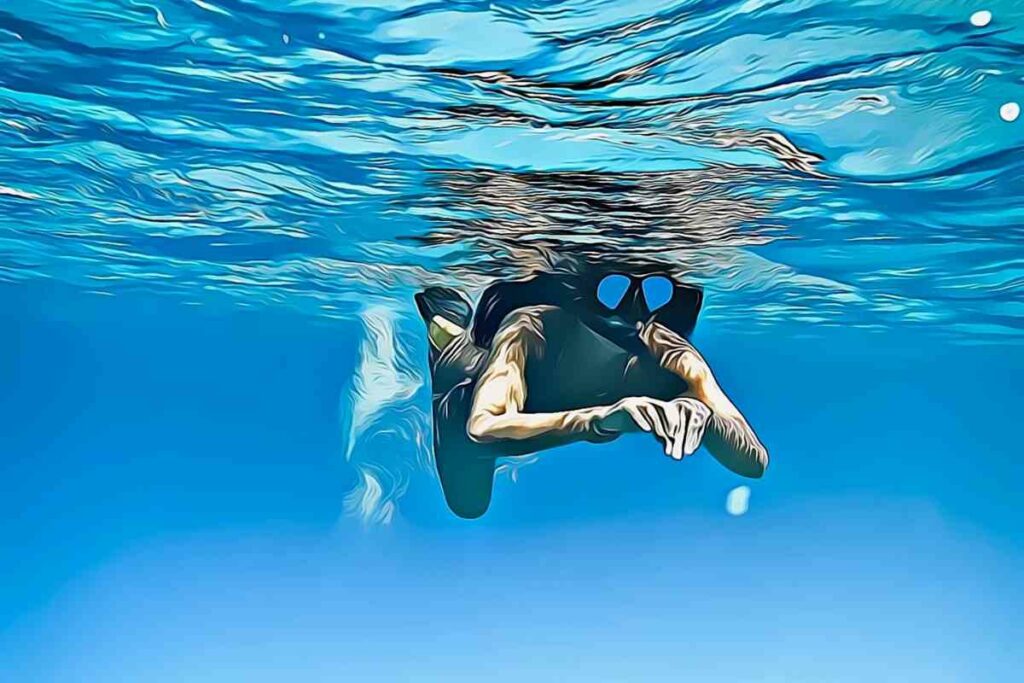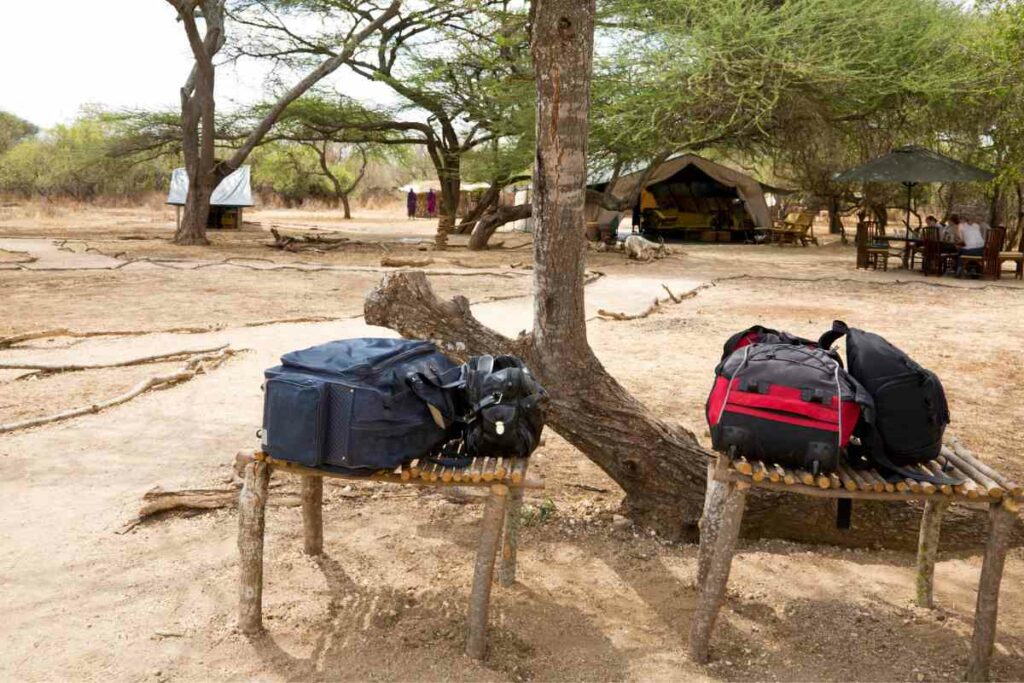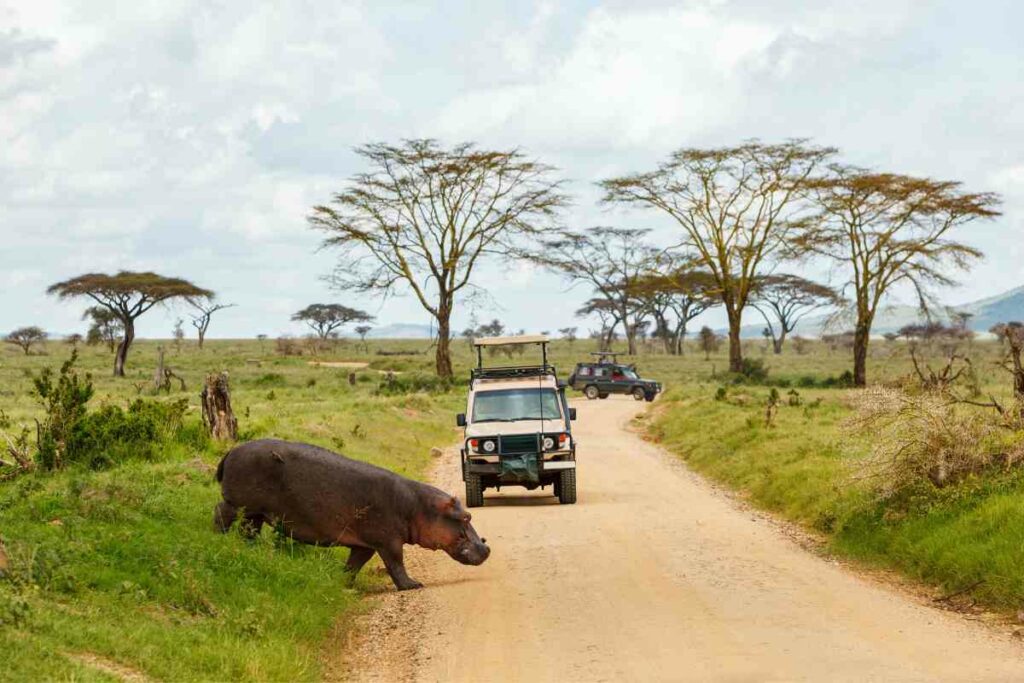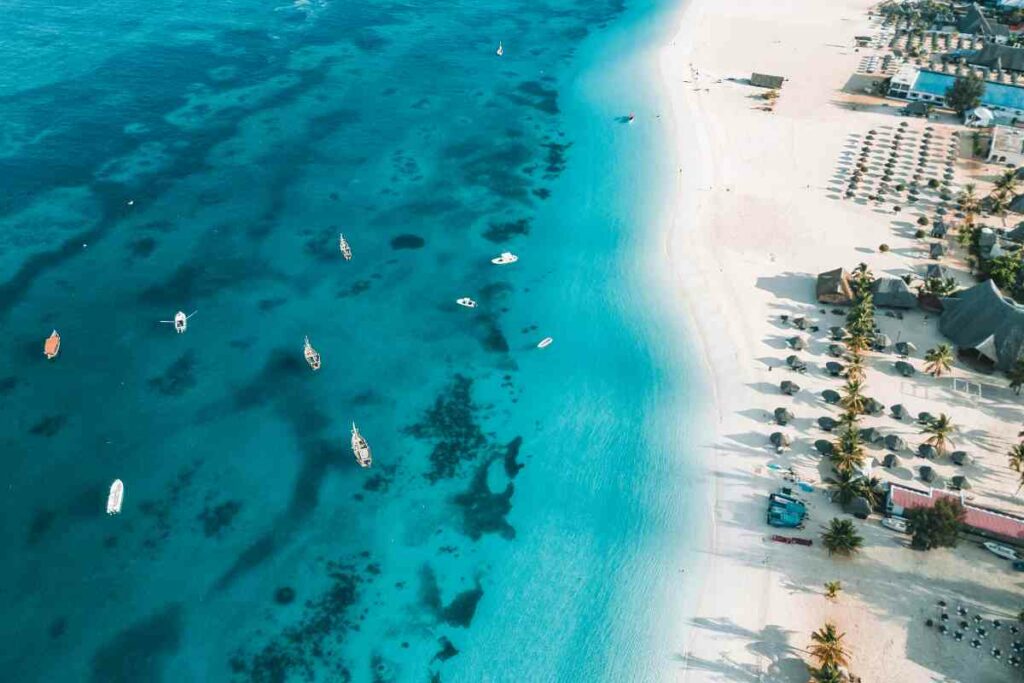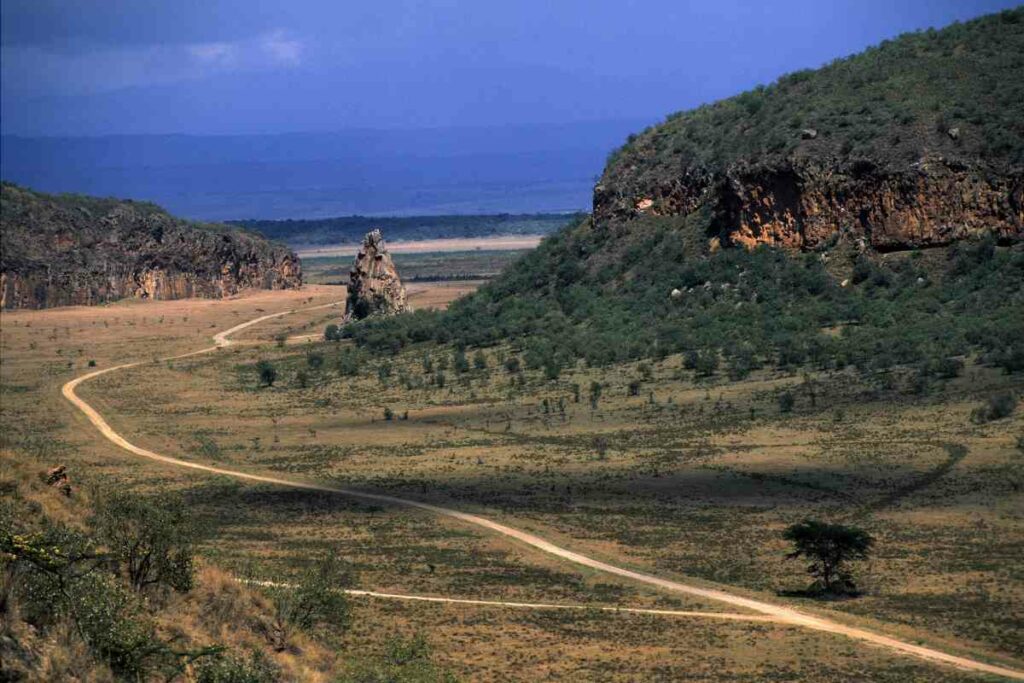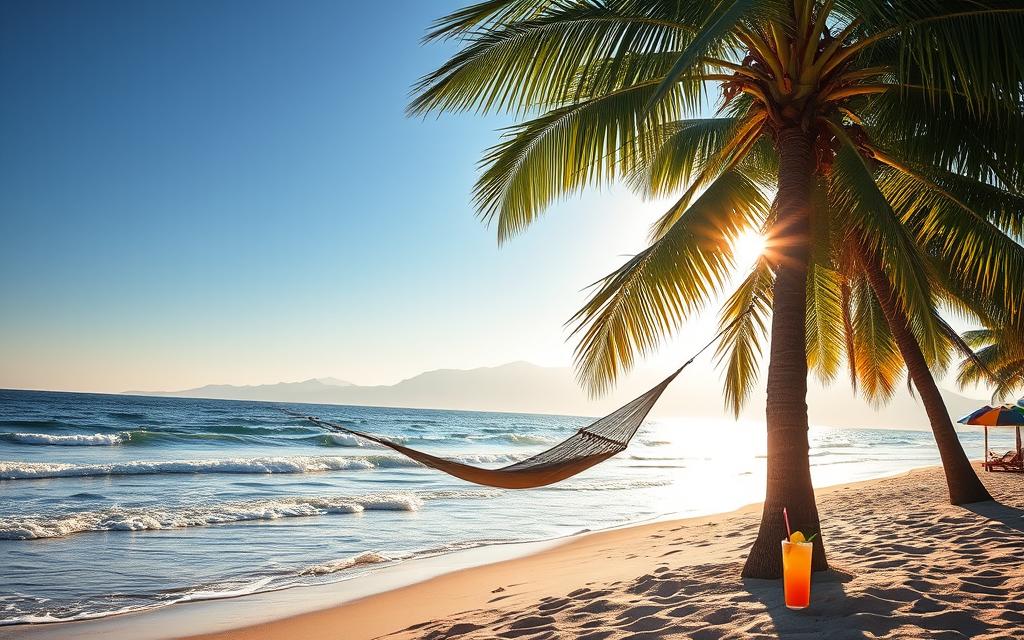Zanzibar is popular because it is quite the quintessential destination – it is the perfect destination for someone who needs a break from life and has a need to get away from it all.
It provides the perfect balance of comfort, luxury, relaxation, sightseeing, learning, and refreshing experiences.
This article will highlight the various reasons why Zanzibar is a top tourist attraction.
Why Zanzibar Is a Top Tourist Attraction
Zanzibar is mostly known for its beaches, however, there are plenty of other attractions on the island.
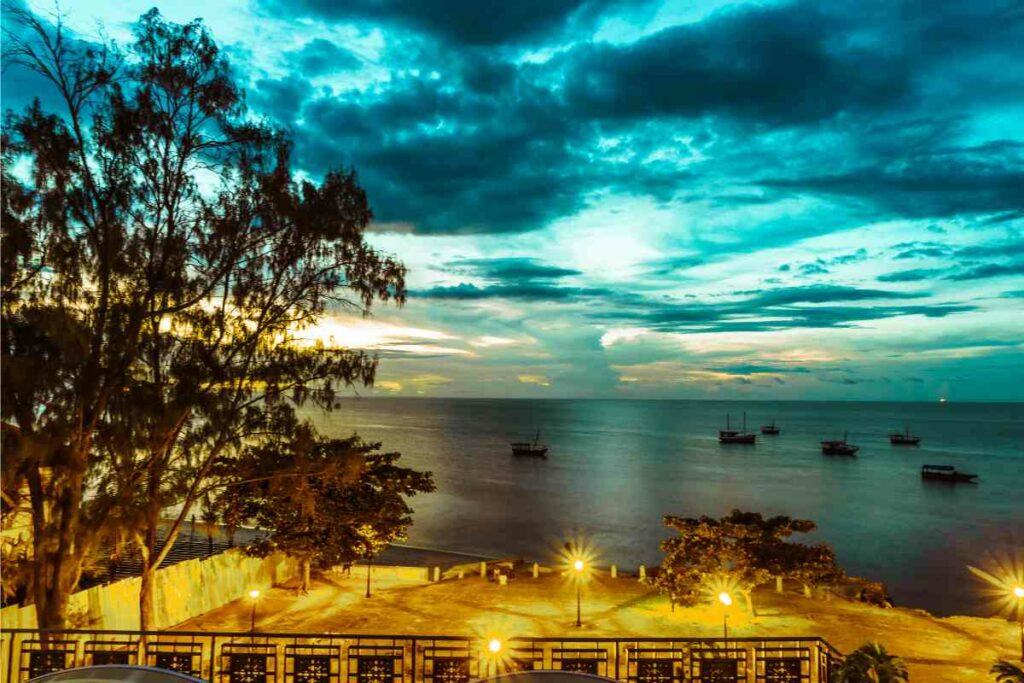
Some of them include the following.
1. Zanzibar Has Amazing Beaches
Zanzibar is the ultimate beach destination – it is an island, after all.
Its beaches are pristine with warm, shimmering, azure tropical waters and turquoise waves.
Not only do the beaches have a calming edge, but they are also a sight to behold!
Some of the famous beaches include:
- Nungwi beach
- Paje Beach
- Kendwa Beach
The sand is white and smooth enough for a therapeutic walk along the beach.
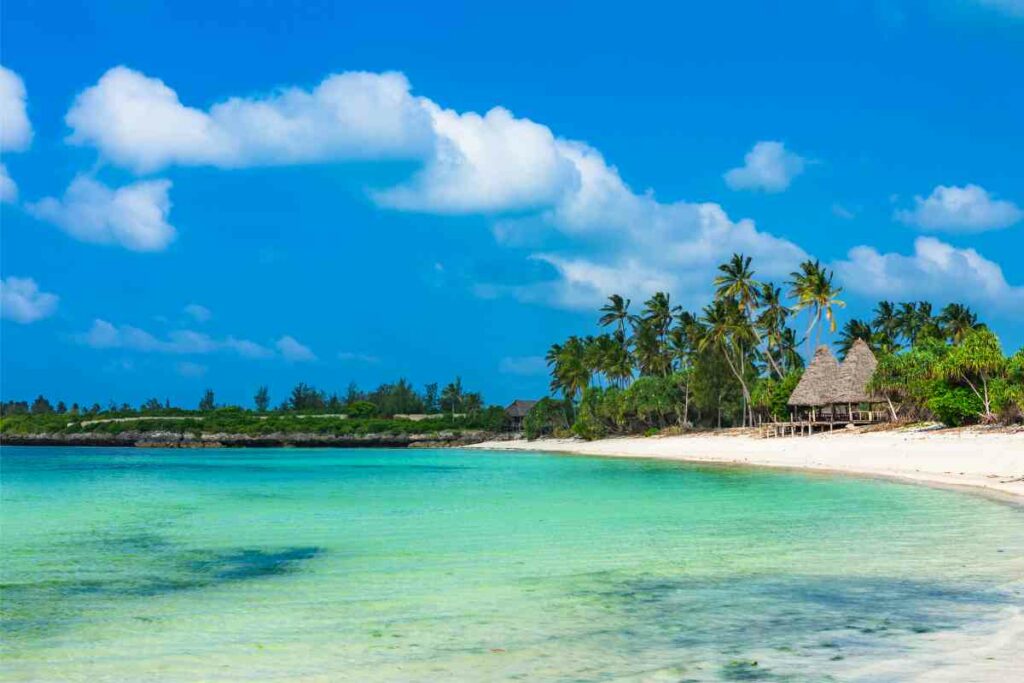
Alternatively, you can lay on a sisal daybed or swing the afternoon away on a hammock connected between two palm trees.
Speaking of Trees – The tropical vegetation on the Zanzibari beaches is nothing short of a spell of beauty with a tranquilizing effect. This will be the perfect environment for you if you are into meditation and self-introspection.
The beaches also cater to outdoor water enthusiasts and adventurers who want to participate in activities such as:
- Diving
- Snorkelling
- Fishing
- Surfing
- Paddle boarding
- Shore dives or reef dives
- Windsurfing
- island hopping
- water-skiing
- kiteboarding
You may also like ?
2. The Island Is a Spice Hub
There is a reason why Zanzibar is nick-named Spice Island- it is well-known for the large variety of its exotic spices.
Aficionados from all over the world travel to the island to learn about the different spices and sample them.
Those who are not particularly interested in spices also want to come and see what the hype is all about.
The island has been growing spices for centuries, and the plantations exist today.
One of the more popular spice plantations on the island is the Kizimbani Spice Farm in Unguja.
While visiting the plantations, expect to come across spices like:
- Cloves
- Nutmeg
- Turmeric
- black pepper
- bulls-heart
- nutmeg
- ginger
- lemongrass
- cinnamon
Spice tours typically last for two to three hours, during which you will learn everything there is to know about the crops.
Among the things you will learn is that besides culinary value, some spices are used for medicinal purposes, and others are components in cosmetics.
3. Zanzibar Has A Rich History
Zanzibar’s history makes the island even more vibrant.
The island has been a town for hundreds of years, and as with old towns, it comes with many stories.
For Starters – Zanzibar was once a popular slave market when the slave trade was a thing. It was also a stopover for traders on the move and a vital player in the trade of ivory.
Due to its convenient location, foreigners would settle on the island, and it was even fought for at different points.
As such, there are heavy Indian, Persian, Arabic, and European influences in the island’s culture, architecture, and furniture style.
You will not have had a good inkling of the island’s history if you do not visit the Stone Town.
As per the name, most of the buildings in this town are made of stone.
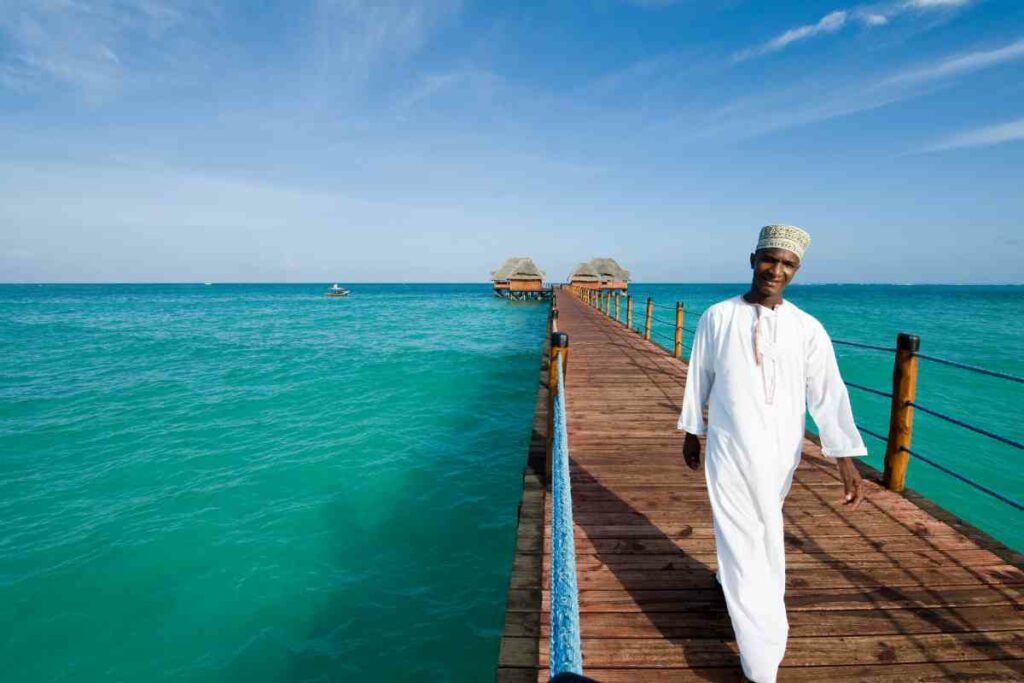
This is thanks to the original architectural style of the town.
Some of the buildings are so old that they are currently in ruins, contributing to the town’s heritage.
Being one of the oldest Swahili towns in East Africa, Stone Town was named a UNESCO World Heritage Site in 2000 as it preserves most of the historical events that occurred on the island.
It houses some of the oldest buildings, such as the Old Fort, or as it is locally known, Ngome Kongwe.
The Omani Arabs built the Old Fort in the 17th Century to protect the town against enemies.
Other major attractions in Stone town are the Anglican and Catholic cathedrals, which are a testament to the colonial advent on the island.
The mosques and the ceremonial palace remind people of the presence of Sultans years ago.
4. The Culture of Zanzibar
The culture of Zanzibar is a product of cross-cultural exchanges over time.
Primarily, Zanzibaris, as they are called, are Swahilis who lead a predominantly Islamic lifestyle.
The main language spoken on the island is Kiswahili, which is a product of crossbreeding between East African Bantus and Arabs.
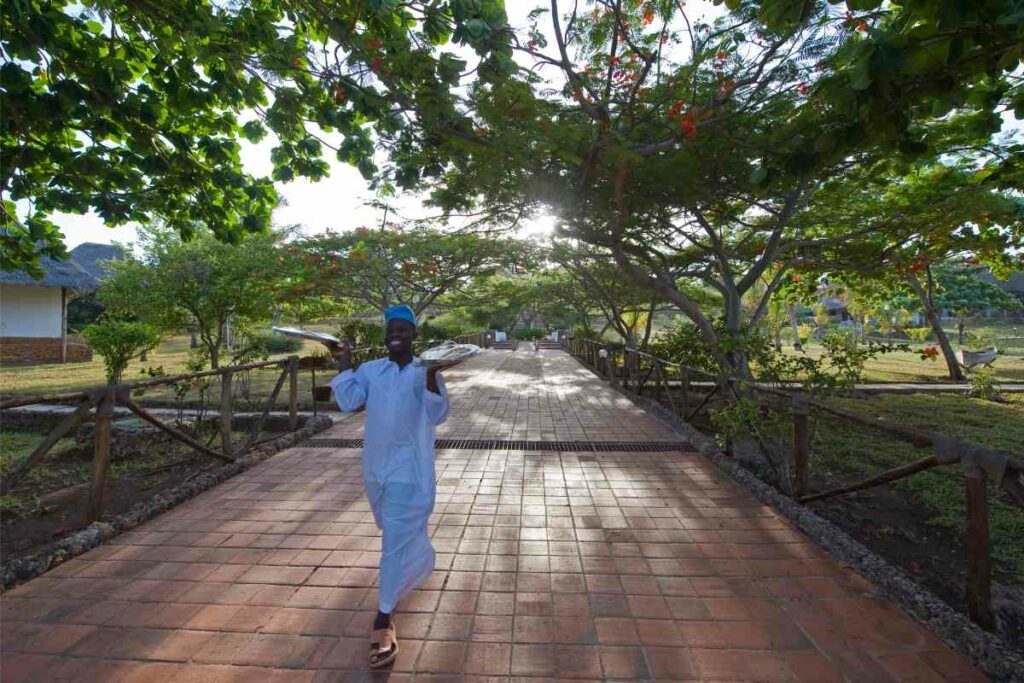
Besides Kiswahili, locals also speak Arabic and English.
Zanzibaris are warm, friendly people who are almost always down for a chat.
Life on the island is also quite laid back- if you talk a walk in the main towns, you are likely to find older men relaxing at the town squares (barazas), drinking coffee, and playing board games.
There are always children running around happily along the Forodhani Gardens.
Tourists can take part in various cultural immersion activities.
For instance, there are places where you can go to listen to and enjoy the local music, taarab.
Taarab is such soothing music, and it is a beautiful blend of Swahili poetry and rhythm with a unique touch of Indian and African influence.
Keep In Mind – It is important, as a tourist, to try to blend in with the Zanzibarian culture. Be sensitive and respectful, keeping in mind that the people here are quite religious and cultural.
It would help if you learned some common words beforehand so that interactions are easier.
For example, ‘jambo’ is commonly used to say ‘hello’ in casual settings.
5. Zanzibar Local Cuisine
You will not have experienced the full glory of Zanzibar if you do not explore the local cuisine.
In terms of food, the island has a lot to offer, and all you need is a few coins and a big appetite.

Essentially, the local cuisine is influenced by:
- Indian
- Portuguese
- African
- Arabic cultures
If you are enthusiastic about seafood, make a point of stopping by the Lobster Thermidor restaurant – it is rumored to be the best.
Your taste buds will be so enticed that you will be tempted to leave a fat tip.
That said, the island’s food markets are the best place to have a full-on experience of Zanzibar cuisine.
These markets usually open late in the afternoon into the night and have different vendors serving different foods.
Some of the common cuisines include:
- The Zanzibar pizza
- Fist-size falafels.
- Seafood
- Roasted meat
- Samosas
- Mishkakis (skewers)
- Delicious rice meals such as pilau and biryani
- Fish plates that are served with fried potato balls
- Urojo soup, which is made with coconut curry and different types of toppings.
Luxury Tea House in Stone House serves the island’s best tea, coffee, and intercontinental food.
Since it is a popular spot, it is advisable to reserve in advance if you want to enjoy some nice beverages.
The place also boasts excellent massaman goat curry, crab cakes, and espresso meringue desserts.
6. Zanzibar Holds A lot of Festivals
Zanzibar is a happy island- the people love celebrations, so there are several festivals each year.
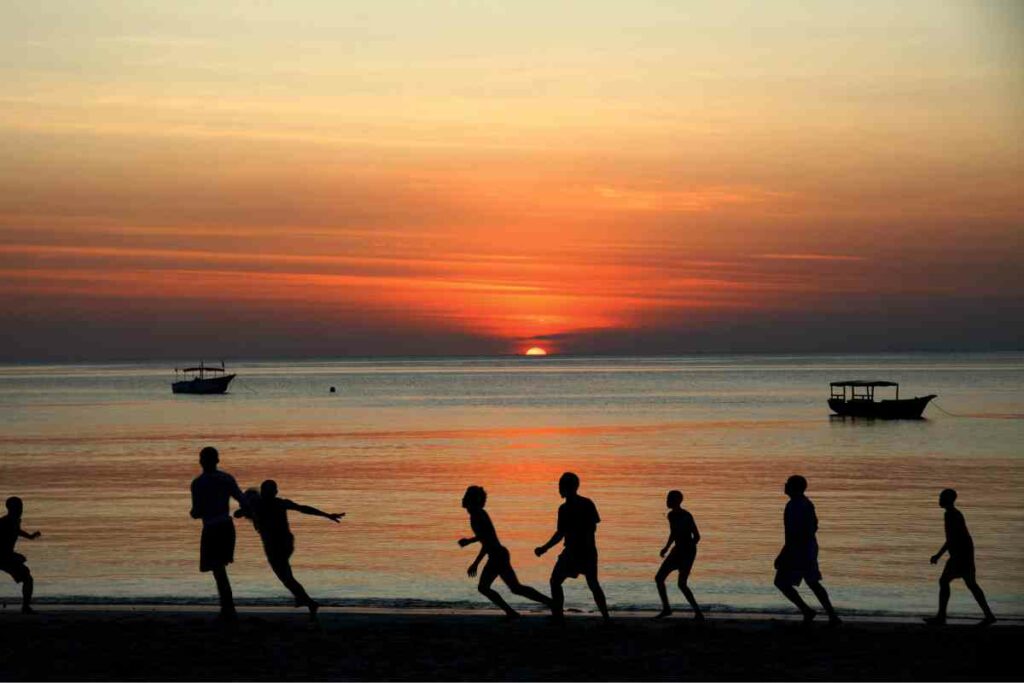
The Sauti za Busara festival takes place each year in February – it is a festival that celebrates music.
Every September – The island holds the Jahazi festival, primarily a celebration of jazz music and literature. Mwaka Kogwa is a four-day festival held in July of every year.
The biggest festival is the Zanzibar International Film Festival (ZIFF), which spans the months of June and July.
It is a cultural event that attracts people not only from Africa but also from the whole world.
ZIFF celebrates music, cinema, and performing arts from different regions of the world.
7. Zanzibar has Diverse Flora and Fauna at Jozani Forest Reserve
The Jozani Forest Reserve is part of Zanzibar’s only national park, the Jozani Chwaka Bay National Park.
It is famously known to be the home to the endangered Red Colobus Monkeys, the rarest primate species in Africa.
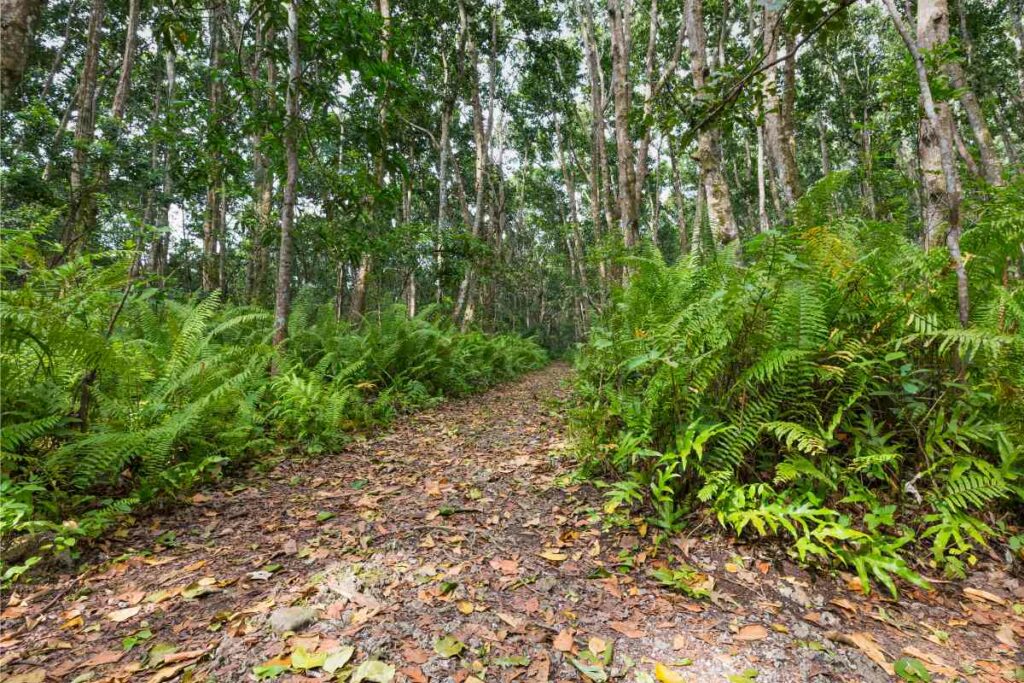
This monkey is endemic to the 50 square-kilometer reserve, which also boasts beautiful and natural scenery.
Besides the monkeys, the reserve is also home to:
- bush babies
- a variety of birds
- Ader’s duiker
- suni antelope
- chameleons
- and lizards
A trail in the Jozani reserve will lead you to mangroves that act as habitats for marine animals like crabs and turtles.
While it may be tempting to spend most of your time sunbathing on the island’s pristine beaches, a trail to Jozani will be totally worth it.
8. Hundreds Of Different Butterfly Species
If you like beautiful things, then you most definitely like butterflies.
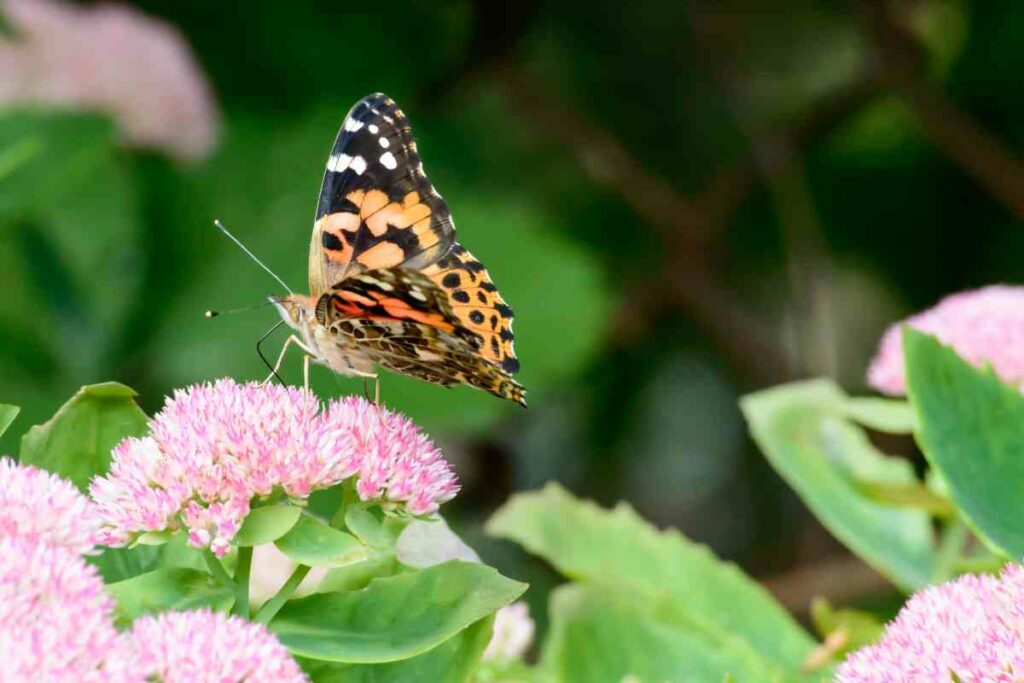
The Zanzibar Butterfly Center, still in Jozani Forest, is one of the biggest butterfly sanctuaries in Africa.
Essentially – It is an environmental community project whereby the locals farm butterflies sustainably to create income.
The butterflies, which are all native to the island, fly freely in the sanctuary.
Thus, you can interact with them, and children can chase them around, provided they don’t harm them.
9. Zanzibar is a Shopping Hub
Whenever you go on an overseas trip, it is always nice to bring a souvenir to keep as a reminder of the experience.
In Zanzibar, there are bazaars, such as the Changa Bazaar, where you can find a variety of trinkets, curios, and different types of souvenirs.
If shopping is part of your trip itinerary, you will be a very satisfied traveler.
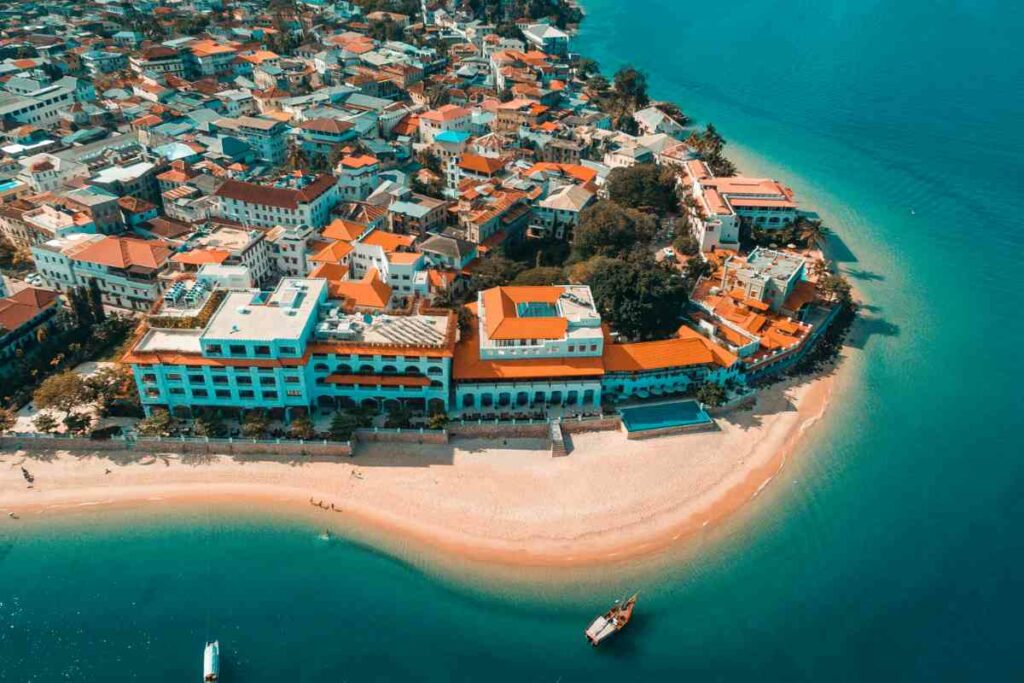
You will likely go home with elegant robes, authentic, hand-crafted jewelry, baskets, hats, and mats.
Many of these items are expertly made using palm leaves or ukili, as they are locally referred to.
Shopping is also a good way to socialize with the locals.
Most of them can speak fluent English, so you can make small talk here and there as you exchange stories and get to know each other.
10. Zanzibar Is Perfect For A Fishing Excursion
One of the activities you can take part in while at Zanzibar is angling.
If you do not feel like laying on the beach for the afternoon, you can take off to the deeper waters to do some fishing.
It does not matter if you are a rookie or an experienced angler- you are still bound to have a good time.
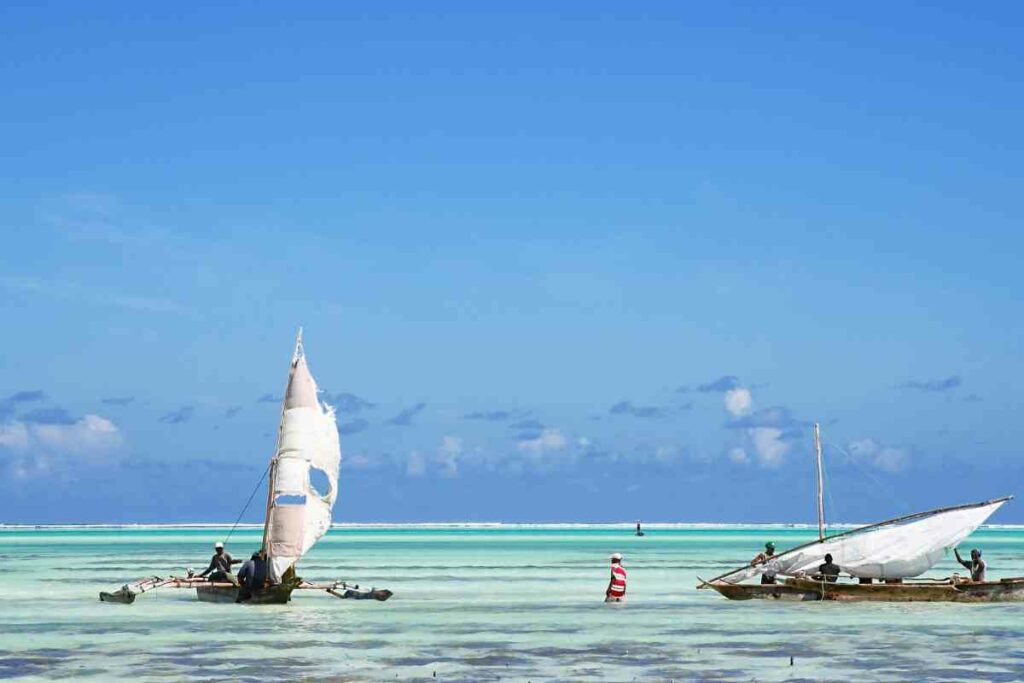
The skipper guides rookies on what to do, so don’t fuss if you are a newbie.
Usually, the skipper guides the anglers to channel out to the deeper waters so that people don’t drop anchors on the reefs and damage them.
Heads Up! For conservation purposes, you can’t keep the fish you have caught; you will have to throw it back into the ocean. Only under specific circumstances are anglers allowed to keep their catch.
11. You Get to Interact with Dolphins and Turtles
Dolphins are some of the sweetest animals on earth.
If you love animals, and the chances are high that you do, then you would be delighted to learn that you can have a one-on-one with dolphins at Kizimkazi, South coast of Zanzibar.
Here, you will hang out with a school of blue nose dolphins for a couple of hours.
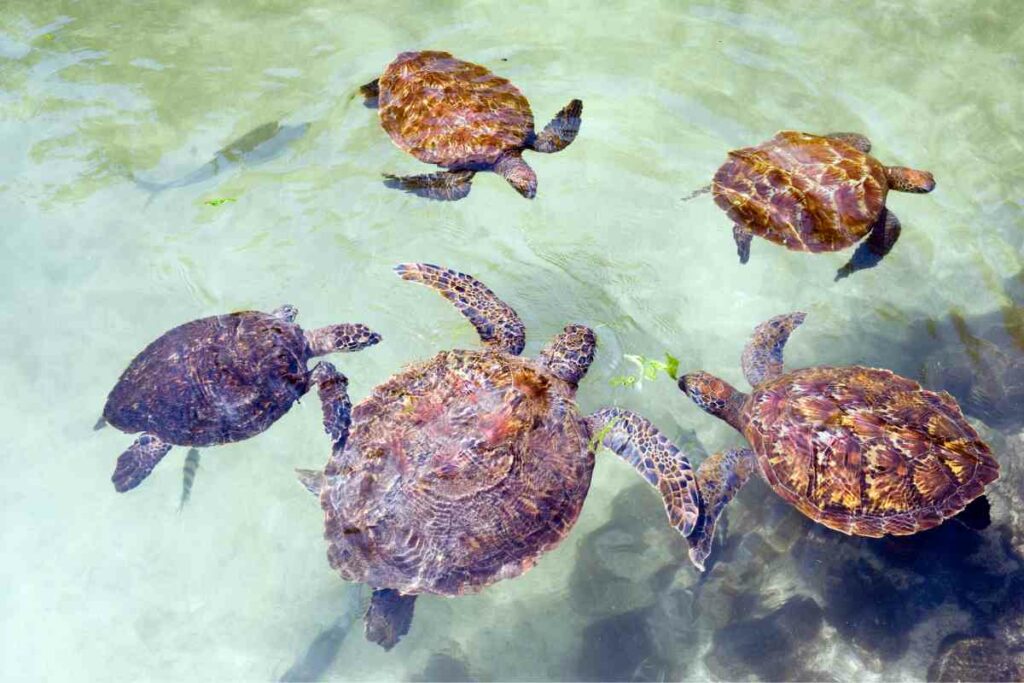
The waters are so clear that you won’t miss a thing in the unforgettable experience.
On the Northern tip of the island, there is the Mnarani Natural Aquarium, where you can observe hundreds of turtles existing and doing their thing.
The aquarium, which primarily houses green turtles, is built around a natural tidal pool and keeps them and their hatchlings safe.
Since it is a community conservation project, one of the aquarium’s goals is to educate people on the importance of protecting turtles.
Fun Facts About Zanzibar
1. Freddie Mercury Was Born In Zanzibar
You do not necessarily have to be a fan of rock music to be familiar with Freddie Mercury.
He is well renowned as the lead singer of the famous rock band Queen.
Real name Faroukh Bulsara, Freddie, who, alongside his bandmates, was inducted into the Rock and Roll Hall of Fame in 2001, is a son of the island.

The island recognizes Freddie Mercury and famously pays tribute to him through the Mercury House museum in Stone town.
The museum exhibits old family photos and his very first piano.
Fans around the world flock to the Shangani area where the legend spent his early childhood.
2. Zanzibar Is Not Just One Island
Zanzibar is not just one island, as many people may believe.
Instead, it is an archipelago of several islands, with two main islands- Pemba and Unguja.
There are also many smaller islands, like:
- Mafia
- Mnemba
- Nungwi
- Pongwe
- Bwejuu
- Kendwa
- Chumbe
- Jambiani
- Paje.
The smaller islands make it possible to enjoy a private island escapade, where you can isolate yourself from the outside world for a few days.
Frequently Asked Questions
How To Get to Zanzibar?
There are two ways to get to Zanzibar, depending on where you are coming from.
If you are coming from Dar es Salaam, you can get to Stone Town via a ferry, boat, or plane.
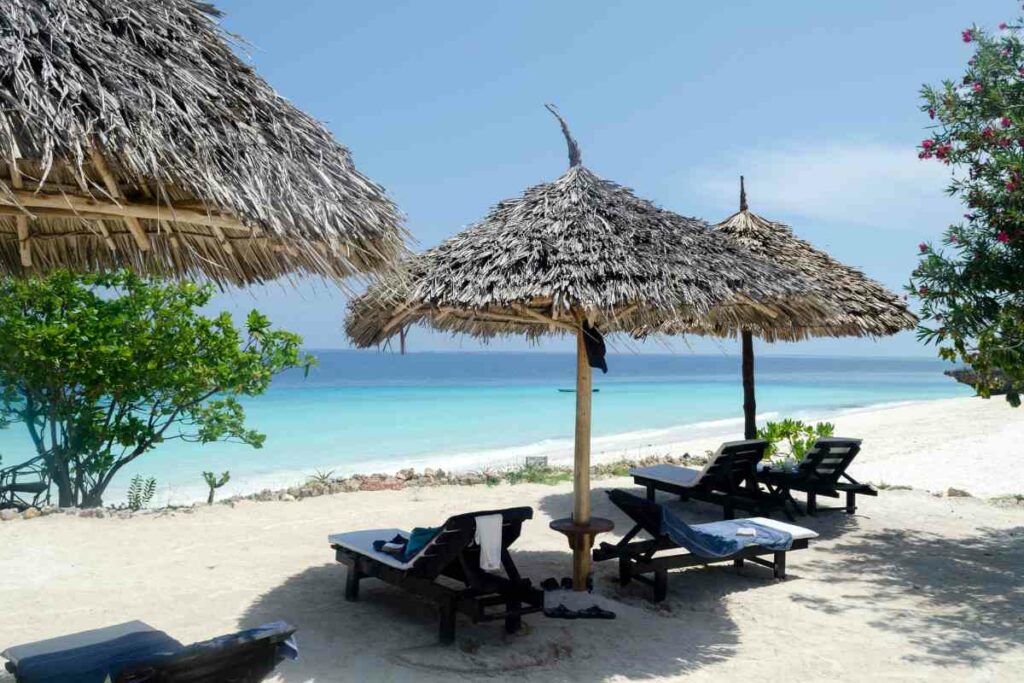
A ferry or a boat ride will take about two hours, while a flight from Dar es Salaam makes for a 20-minute journey.
You can fly directly to the island from Johannesburg, South Africa, and Nairobi, Kenya.
If you are traveling from Heathrow, London, you can connect your flight to Zanzibar at Nairobi, Doha, Johannesburg, Muscat, or Addis Ababa.
Is Zanzibar Safe For Tourists?
Zanzibar is one of the safest tourist destinations in Africa.
Locals take the safety of tourists seriously, seeing that tourism is a major source of income for the island. Therefore, they strive to make the place as tourism-friendly as possible.
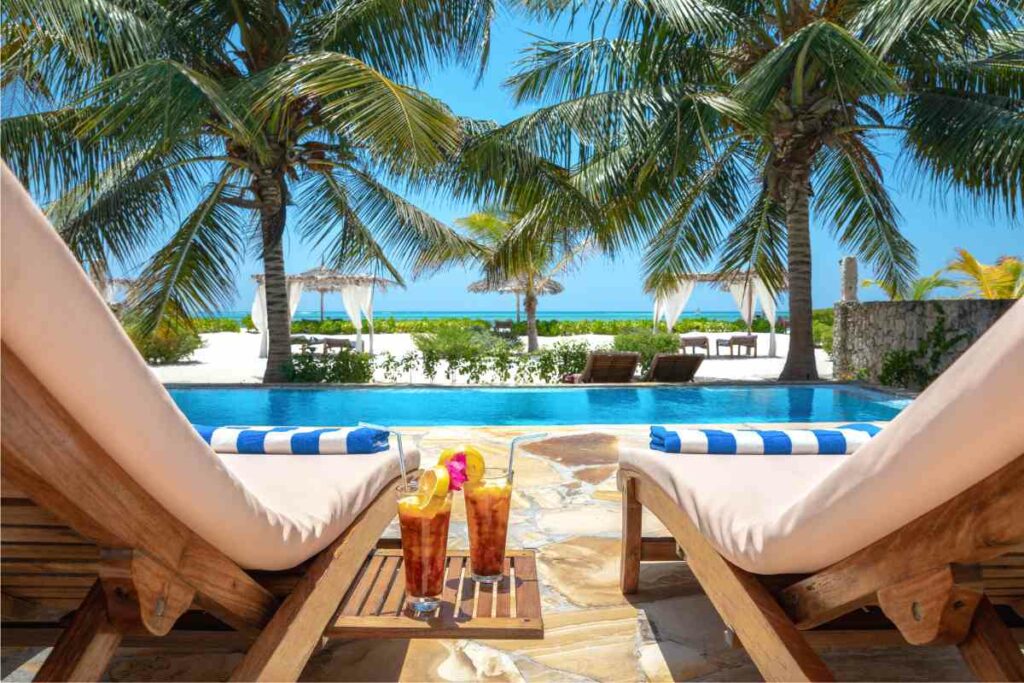
Even so, at the end of the day, your safety is your personal responsibility. So, do not throw all caution to the ocean breeze.
It is advisable to use common sense and avoid scenarios that may pose a danger, such as walking alone at night or going to secluded places alone.
In Conclusion
If you have never been to Zanzibar before, you should add that trip to your bucket list.
The archipelago has the potential to give you the experience of a lifetime, what with the pristine beaches, friendly locals, rich heritage, outdoor water activities, and local cuisines.
Besides being safe and affordable, Zanzibar is unique in every respect: culture, architecture, spices, eco-tourism, and hand-crafted artifacts.
It also presents a fascinating history as it is one of the oldest towns in the region.


